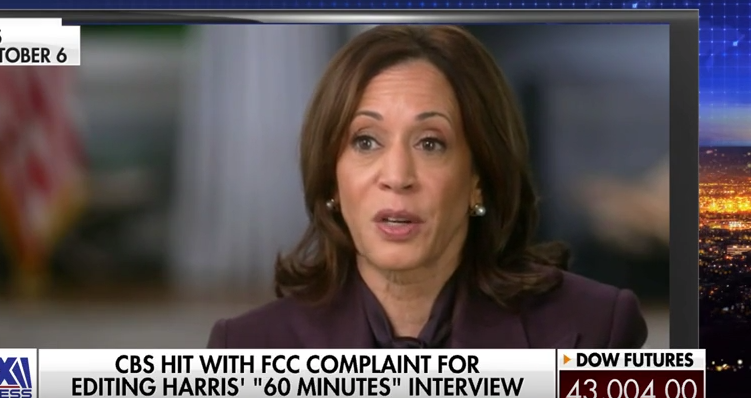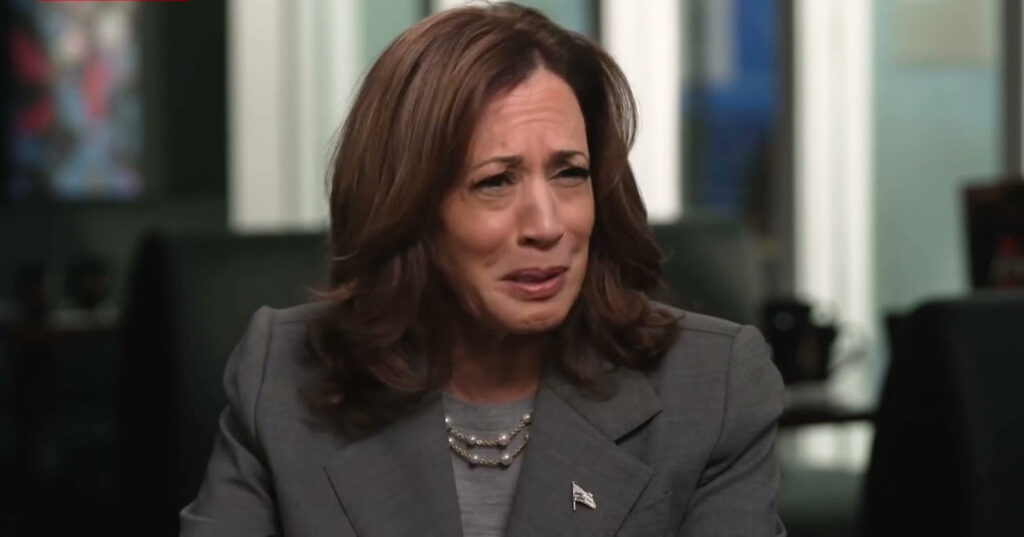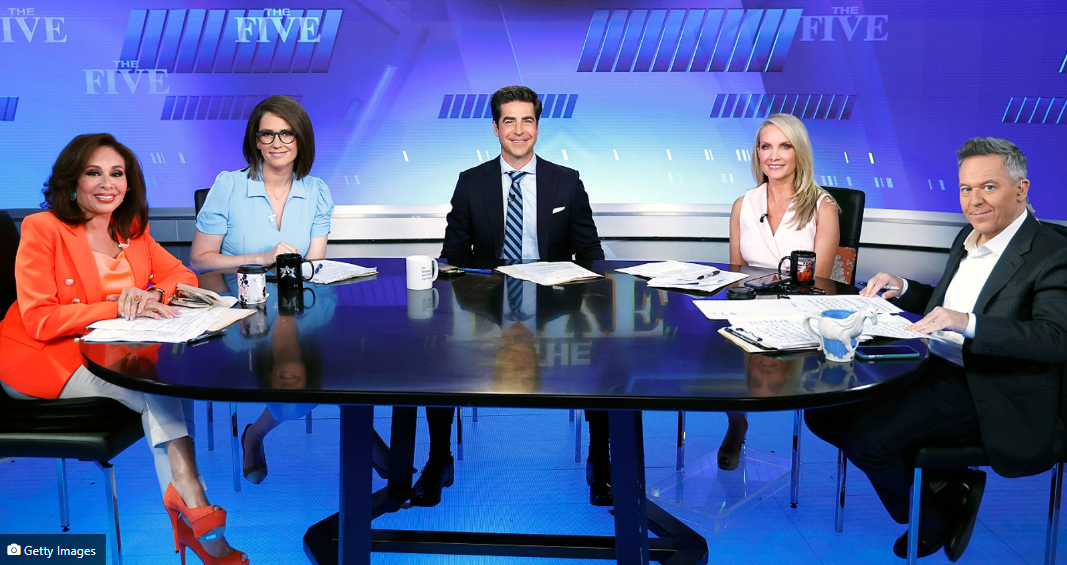CBS has come under fire after facing a formal complaint filed with the Federal Communications Commission (FCC), alleging misleading edits during Vice President Kamala Harris’s 60 Minutes interview. The network has been accused of editing Harris’s responses to misrepresent her stance on issues related to the ongoing conflict between Israel and Hamas.
Maria Bartiromo, host of Fox Business, tackled the controversy with FCC Commissioner Brendan Carr, who explained the gravity of the situation. “My SEC colleague, Republican Commissioner Simington, has been very active on this,” Carr said. “What he’s pointed out is the news distortion rule is a very, very narrow rule at the FCC. In almost every case, it doesn’t apply because it could get into sort of editorial decisions that are protected by the First Amendment. But what he said is that CBS should release the transcript.”
“The reason why this complaint is not frivolous is because the rules say, for instance, the example we’ve given is, if you take an answer to a question that is a yes, and you replace the answer of no from a different question, that that’s something that would potentially fall within the news distortion rule,” Carr said.
He continued, “I don’t think this needs to be a federal case, because I think CBS should release it [transcript], and then that would inoculate entirely CBS from that FCC complaint.” He went on to add, “In fact, I know people are reaching out to their local affiliates right now, asking them if they would release that transcript.”
WATCH:
The complaint, filed by the conservative watchdog group Center for American Rights, accuses CBS of editing Vice President Harris’s interview on 60 Minutes in a way that misrepresented her remarks on the ongoing conflict between Israel and Hamas. In the original clip, Harris was seen struggling with her response to questions about the conflict. This portion of the interview was notably absent from the final broadcast.
The interview conducted by CBS correspondent Bill Whitaker was supposed to showcase Harris’ foreign policy acumen, a crucial aspect as she navigates the 2024 presidential campaign. Whitaker asked, “But it seems that Prime Minister Netanyahu is not listening.”
In response, Harris said, “Well Bill, the work that we have done has resulted in a number of movements in that region by Israel that were very much prompted by or a result of many things, including our advocacy for what needs to happen in the region… We are not going to stop pursuing what is necessary for the United States to be clear about where we stand on the need for this war to end.”
WATCH:
Harris’s answer, which some labeled as incoherent, was met with a wave of backlash on social media, with many accusing the vice president of dodging the question and failing to offer any substantial insight into the administration’s plans for resolving the conflict. However, the aired version of the interview saw this entire portion removed, replaced by a much shorter and more polished response from Harris. The Center for American Rights (CAR) claimed that the discrepancies “amount to deliberate news distortion — a violation of FCC rules governing broadcasters’ public interest obligations.
“This isn’t just about one interview or one network,” said CAR president Daniel Suhr. “This is about the public’s trust in the media on critical issues of national security and international relations during one of the most consequential elections of our time,” Suhr continued. “When broadcasters manipulate interviews and distort reality, it undermines democracy itself. The FCC must act swiftly to restore public confidence in our news media.”
“The need for the Commission’s action is strengthened by CBS’s refusal thus far to release the transcript, which it has done in similar interviews in the past,” the complaint noted. FCC complaints of this nature are rare, but they have the potential to result in fines or other penalties if the commission finds evidence of unethical broadcasting practices.



